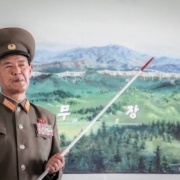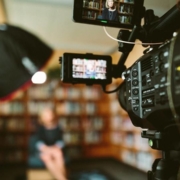Photojournalism course held by Gianluca Pardelli (The Guardian and more) at Berlino Schule
Another edition of photojournalism and documentary photography course held by the Italian photojournalist Gianluca Pardelli is coming soon to Berlino Schule.
Starting the 9th of October, the course is aimed to provide participants with a basic knowledge of the photographic discipline as one of the most efficient story-telling instruments. The course is structured in eight different units, including photographic excursions through the challenging human environment of Berlin. After the excursions the participants will be involved in a post-processing workshop during which they will have the opportunity to learn more about editing techniques. The lessons will be held every Tuesday from 19:45 to 22:00 till the end of November. The course will be entirely in English. The price of the whole course amounts to 190€.
For info and registration, please drop us a line at info@berlinoschule.com
The structure
After a general introduction to the topic and its dynamics, terminology and history (Unit 1) the course will then focus on fundamental elements of photojournalism and documentary photography such as the search for the subject (Unit 2), the relationship to be established with it (Unit 3), the complex task of building a captivating story (Unit 4) and the contamination and integration of other media within the photojournalistic practice (Unit 5). After the excursion (Unit 6) the participants will be involved in a post-processing workshop (Unit 7) during which they will have the opportunity to learn more about editing techniques. Finally, for those interested in pursuing a career in the field, a whole lecture will be devoted to photojournalism and documentary photography as a possible professional path within the current media industry (Unit 8).
The objective
During the whole duration of the course each participant will be encouraged to develop her/his own photojournalistic idea that will gradually take the form of the course completion project. All the participants’ works will be then showcased in a photography exhibition organized by Berlino Schule and Berlino Magazine.
The teacher: Gianluca Pardelli
Born in Livorno, but Berliner by adoption, the Italian photojournalist Gianluca Pardelli collaborates with The Guardian and some othe national and international magazines. He studied Slavic languages and cultures and specialized in reportages from Eastern Europe. In 2013 he travelled to North Korea, one of the most isolated and less understood countries in the world, to portray the daily life hidden behind the façade of the regime’s triumphal architecture. “North Korea can be considered as one of the few realities of the Eastern Block which survived to the fall of the Berlin Wall. It developed an independent form of totalitarism, much different from the one represented by Lenin or Castro”. Taking pictures of North Korean people is not common. “I travelled with an organized tour. It could have not been otherwise. The inhabitants are really keen on getting to know foreigners, but are scared of them as well. They are shy and happy at the same time. This is a strange but interesting mix for a photojournalist“. Here you can find some photos of Gianluca Pardelli’s reportage.
The course’s programme
Unit 1 – Introduction to photojournalism and documentary photography
Definition of photojournalism
Difference between photojournalism and documentary photography
Terminology and general glossary
Photojournalists are not photographers
Main actors in the world of photojournalism
A photojournalist’s credo. Cameras are like pens
Brief history of photojournalism
Display and first analysis attempt of a selected array of some major photojournalists’ works
Display and analysis of any work participants might want to present
Group brainstorming for photojournalistic ideas the participants will develop on their own as course completion project
Group discussion and evaluation
Unit 2 – In search of the subject
Defining the subject
Subjects and objects
Legitimacy of the subject
The search for the subject: a geographical and sociological study
Display and subject-focused analysis of well-known photojournalists’ works
Group discussion about past and present personal experiences related to the complex process of finding the right subject
Group discussion and update on the photojournalistic ideas the participants will develop on their own as course completion project
Unit 3 – Dealing with the subject
Photojournalist / subject relationship
Personal involvement with the subject
Keeping the right distance
Approaching the subject
Practical issues: language barriers, geographical distances, legal or bureaucratic obstacles and similar
Setting things straight
Reticence and mistrust
Honesty and clarity
Coping with the subject
Long-term vs short-term projects and implications
Following and accompanying. Semantic differences between the two terms and consequences on the everyday photojournalist-subject relation
Subject-driven reportages. When the subject takes the lead
Different photographic techniques for different subjects
Display and analysis of well-known photojournalists’ works focusing on the relationship with the subject
Group discussion about past and present personal experiences related to the photographer-subject relation
Group discussion and update on the photojournalistic ideas the participants will develop on their own as course completion project
Unit 4 – Building the story
From beautiful images to beautiful stories: the not-so-easy process of giving a journalistic meaning to a visually pleasant set of pictures
Beyond aesthetics: the relative importance of beauty in photojournalism and documentary photography
Finding the leitmotiv: how to follow the thin red line enlivening a project with meaningfulness
How images relate to each other
Same story, different focuses. Contest-conditioned narration
The underlying message and the different variables influencing its transmission
Text and images. Should a picture really speak for itself?
Photography in relation with other story- telling media: a comparison
Display and analysis of well-known photojournalists’ works focusing on the process of creating a story
Group discussion about past and present personal experiences related to the drafting of a photographic narration
Group discussion and update on the photojournalistic ideas the participants will develop on their own as course completion project
Unit 5 – Multimedia
Beyond photography, within photography: disturbance and integration
Brief overview of past and current tendencies
Pro and contra of the multimedia practice
How photography relates with other media: looking for harmony, avoiding mishmashes
Video and photography
Sound and photography
Literature and photography
Painting and photography
New creative horizons
Display and analysis of well-known photojournalists’ multimedia works
Group discussion about past and present personal experiences related to the use of different media other than photography
Group discussion and update on the photojournalistic ideas the participants will develop on their own as course completion project
Unit 6 – Excursion
Visit of a challenging human environment in Berlin
Shooting short sample reportages
On-the-ground practice of the notions learned in the previous units
Unit 7 – Editing workshop
Guided editing of the material shot during the excursion
Editing techniques
Lightroom and Photoshop basics
Captions and texts drafting
Group discussion about each participant’s work and editing performances
Unit 8 – Photojournalism as a career
Do you really want to be a photojournalism?
Motivations
A brief history of photojournalism as a professional path
The current state of photojournalism
The photojournalism market
Freelancer vs staff photographer
Funding your projects as a freelance
Kickstarter, Indiegogo and the crowd-funding market
Contests, grants and exhibitions
Getting published and self-publishing
Group discussion and analysis of some famous examples of self-funded projects
Group brainstorming on how to find financial solutions to fund the participants’ project
Group discussion and update on the photojournalistic ideas the participants will develop on their own as course completion project
Final Exhibition
Photojournalism and documentary photography course
When
Free trial class: Tuesday 9th of October from 19.45 to 22. Here the Facebook Event.
Course: from 16th October till 27th of November – each Tuesday from 19.45 to 22.
Where
Lessons will be held in our school Berlino Schule, in Gryphiusstr. 23 in Friedrichshain. The next stations are Ostkreuz, Samariterstraße or Warschauerstraße.
Price
The course costs 190 €. Subscriptions to info@berlinoschule.com
Iinfo and registration
Please write an e-mail to info@berlinoschule.com with object “photojournalism”
[adrotate banner=”39″]
SEGUI TUTTE LE NEWS SU BERLINO, SEGUI BERLINO MAGAZINE SU FACEBOOK
[adrotate banner=”34″]



